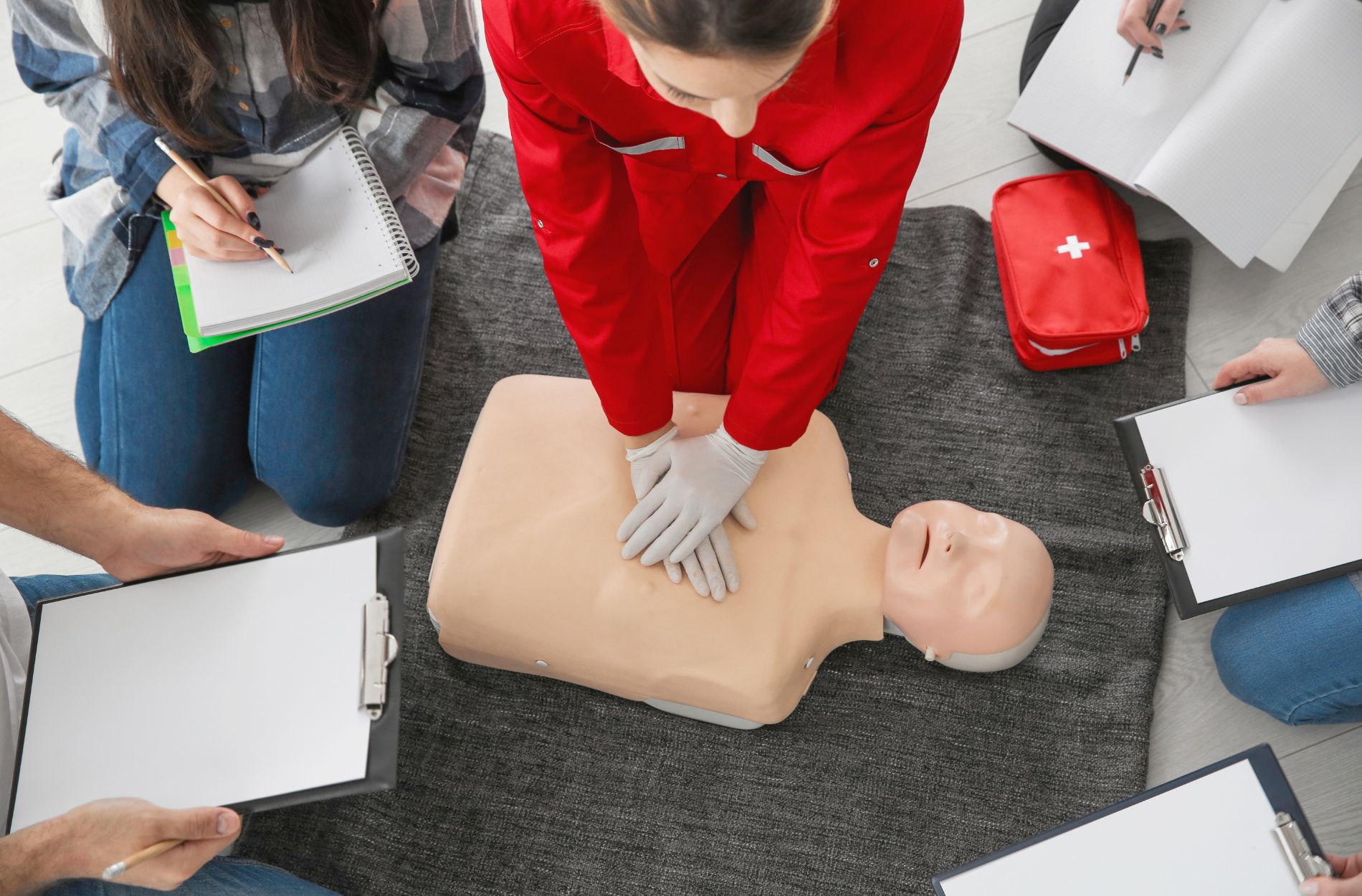Taking a first aid test can seem daunting, especially if you don’t know what to expect. However, understanding the test format and focusing on key skills can help ease your worries. Knowing you are well-prepared will boost your confidence and increase your chances of passing.
First aid tests usually assess your ability to handle emergency situations calmly and effectively. The test might involve both a written component and a practical examination. You’ll likely need to show your knowledge of basic first aid procedures, such as CPR, treating burns, and managing bleeding. Don’t worry; with some practice and preparation, these skills can become second nature.
In this blog, we will break down what you need to know about first aid tests. From understanding the test structure to mastering essential skills, we aim to help you feel ready and confident. We’ll also address common questions and provide helpful tips for success. Passing a first aid test is an important step in providing crucial help in emergencies. Let’s dive deeper into what makes up a first aid test and how you can prepare effectively.
What to Expect in a First Aid Test
The first aid test typically consists of two main parts: a written test and a practical assessment. Understanding the format of each part can help you feel more comfortable and ready on test day.
1. Written Test:
The written test checks your knowledge of first aid principles. Expect multiple-choice questions, true/false questions, and short-answer sections. Topics covered often include:
– Basic first aid procedures
– CPR steps
– How to treat common injuries like cuts, burns, and fractures
– Signs and symptoms of serious medical conditions, such as heart attacks and strokes
Reading through the course material and taking practice quizzes can help you prepare for the written portion.
2. Practical Assessment:
The practical part tests your ability to apply first aid skills in real-life scenarios. You might be asked to:
– Perform CPR on a manikin
– Demonstrate how to treat a bleeding wound
– Show how to immobilise a broken limb
– Explain how to assist someone who is choking
Instructors will observe your technique and ensure you follow proper steps. Practising these skills with classmates or family members can boost your confidence.
By familiarising yourself with the test structure, you can approach your first aid test with a clear idea of what to expect and how to succeed.
Key Skills You Need to Pass
To pass a first aid test, you must demonstrate a strong understanding of key first aid skills. Here are the essential skills you need to master:
1. Cardiopulmonary Resuscitation (CPR):
– Steps: Check responsiveness, call for help, start chest compressions, and provide rescue breaths.
– Important: Ensure good hand positioning, proper compression depth, and a steady rhythm.
2. Controlling Bleeding:
– Steps: Apply pressure to the wound, use a clean cloth or bandage, elevate the wounded area, and seek further help if needed.
– Important: Know the difference between minor and severe bleeding and when to use additional measures like a tourniquet.
3. Treating Burns:
– Steps: Cool the burn under running water for at least 10 minutes, cover with a clean cloth, and avoid using creams or popping blisters.
– Important: Recognise the difference between minor and severe burns and how to handle chemical burns and electrical burns.
4. Handling Choking:
– Steps: Perform the Heimlich manoeuvre for adults and back blows for infants, and know what to do if the person becomes unconscious.
– Important: Learn to identify when someone is truly choking and needs help.
5. Assisting Someone Having a Heart Attack:
– Steps: Recognise symptoms, keep the person calm, give aspirin if they’re not allergic, and call emergency services.
– Important: Understand the signs of a heart attack and act quickly.
Mastering these skills through regular practice and review ensures you are well-prepared to handle the practical part of the first aid test. This knowledge not only helps you pass the test but also prepares you to provide effective assistance in real emergencies.
Common Questions and Answers About the First Aid Test
Many people have questions about the first aid test. Here are some of the most common ones, along with their answers:
1. How Long is the Test?
The duration of the test can vary, but typically it lasts a few hours, including both the written and practical parts. It’s best to set aside an entire morning or afternoon.
2. What Topics Are Covered?
Expect questions on:
– Basic first aid procedures
– CPR techniques
– Managing burns, bleeding, and fractures
– Recognising symptoms of serious conditions
Review your course materials thoroughly as these topics will be covered in both the written and practical sections.
3. Do I Need to Memorise All Procedures?
Understanding the steps and being able to perform them correctly is more important than memorising every word. Focus on learning the correct techniques.
4. What If I Make a Mistake?
Instructors know that tests can be stressful. Small mistakes might not cause you to fail as long as you demonstrate overall competence and understanding. Practise minimising errors.
5. How Is the Test Scored?
The test is usually scored based on accuracy in the written answers and proper technique in the practical part. Passing scores vary, so check with your training provider.
6. Can I Retake the Test If I Fail?
Most training providers allow retakes. Make sure to ask about their specific policies and any fees involved before scheduling your test.
Knowing these answers can help ease anxiety and prepare you for what to expect during your first aid test.
Tips to Prepare and Succeed
Preparing for a first aid test involves a mix of study and practice. Here are some tips to help you succeed:
1. Study Consistently:
– Review your course materials regularly. Don’t cram all the information into one session.
– Use practice quizzes to test your knowledge. They help identify areas that need more review.
– Summarise key points in your own words. Teaching someone else can reinforce your understanding.
2. Practise Hands-On Skills:
– Perform CPR on a manikin to get comfortable with the process.
– Practise bandaging techniques and treating fake wounds.
– Role-play different scenarios, such as choking or heart attacks, with friends or family.
3. Stay Calm and Focused:
– Get a good night’s sleep before the test. Being well-rested helps you stay alert.
– Eat a healthy meal beforehand to maintain energy levels.
– Take deep breaths to stay calm during the test. Keep a positive mindset.
4. Know the Test Format:
– Familiarise yourself with the test structure and types of questions.
– Understand how you will be assessed during the practical component.
5. Ask Questions:
– If unsure about any topic, ask your instructor for clarification.
– Discuss difficult concepts with classmates to gain different perspectives.
By following these tips, you can walk into your first aid test with confidence and the skills needed to pass.
Conclusion
A first aid test doesn’t have to be intimidating. Understanding what to expect can boost your confidence. Mastering the key skills needed for the test ensures you are prepared. Familiarising yourself with common questions and practising hands-on techniques helps build a solid foundation. With these tips, you’ll be ready to tackle the test and provide essential first aid in real-life situations.
At CR Training, we offer comprehensive first response first aid training to equip you with the skills and knowledge you need. Visit our website to explore our courses and get started on your journey to becoming proficient in first aid.




